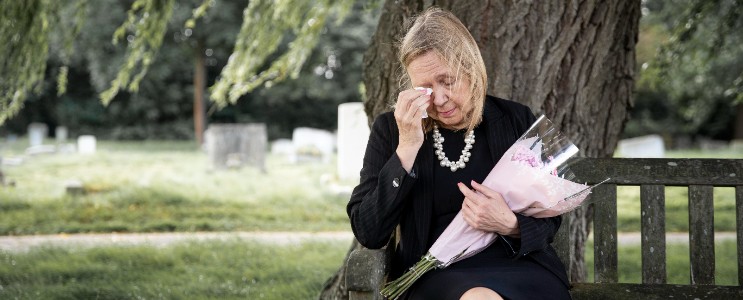
Grief and Loss

Grief and Loss
Grief is a natural response to loss, a complex emotional process that affects everyone differently. Whether it's the loss of a loved one, the end of a relationship, or a significant life change, grief can be overwhelming. Understanding the stages of grief and finding ways to cope can help individuals navigate this challenging journey.
Understanding Grief
Grief is not just about sadness; it encompasses a wide range of emotions including shock, anger, guilt, and despair. It can affect physical health, causing fatigue, changes in appetite, and sleep disturbances. The intensity and duration of grief vary from person to person, influenced by factors such as the nature of the loss, personal resilience, and social support systems.
The Stages of Grief
- Denial: This is the initial shock and disbelief that accompanies the news of a loss. It acts as a buffer, allowing individuals to process the reality of the situation gradually. During this stage, people might feel numb or detached, unable to accept the loss.
- Anger: As the denial fades, the pain of the loss emerges, often expressed as anger. This anger can be directed towards oneself, others, or even the deceased. It's a natural response to feeling helpless and vulnerable.
- Bargaining: In this stage, individuals may dwell on what could have been done differently to prevent the loss. They might make deals with a higher power or ruminate over "if only" scenarios. This stage reflects a desire to regain control and find meaning in the loss.
- Depression: The reality of the loss sets in, leading to profound sadness and despair. This stage involves mourning the loss and acknowledging its impact on one's life. Feelings of emptiness and hopelessness are common.
- Acceptance: In this final stage, individuals come to terms with the loss. Acceptance doesn't mean forgetting or being okay with what happened; rather, it signifies a new way of living with the loss. It's about finding a path forward while honoring the memory of what was lost.
Coping with Grief
While there is no right or wrong way to grieve, there are healthy ways to cope with the pain and eventually find a way to move forward.
- Acknowledge Your Feelings: Allow yourself to feel whatever emotions arise. Bottling up emotions can prolong the grieving process and lead to additional stress. Accept that it's okay to feel sad, angry, or confused.
- Seek Support: Talking about your feelings with friends, family, or a therapist can provide comfort and understanding. Support groups, whether in person or online, can also connect you with others who are experiencing similar losses.
- Take Care of Yourself: Grief can take a toll on your physical health, so it's essential to eat well, get enough sleep, and exercise regularly. Engaging in activities you enjoy can provide a temporary respite from the pain.
- Create Rituals: Finding ways to honor the memory of your loved one or the significance of what you've lost can be therapeutic. This could include lighting a candle, creating a scrapbook, or participating in a cause they cared about.
- Be Patient: Grieving is a long process, and it's essential to give yourself time to heal. There is no timeline for grief, and it's okay to take as long as you need.
- Express Yourself: Creative outlets such as writing, painting, or music can help you process your emotions. Journaling about your feelings or writing a letter to the person you lost can provide a sense of release and closure.
- Consider Professional Help: If you find it difficult to function in your daily life or your grief feels overwhelming, seeking help from a mental health professional can be beneficial. Therapists can offer strategies to cope with intense emotions and work through the grieving process.
The Importance of Grieving
Grieving is a crucial part of healing. It allows individuals to process their loss and integrate it into their lives. Ignoring or suppressing grief can lead to unresolved emotions and potentially more significant issues later on, such as depression or anxiety. While grief may never entirely go away, it changes over time. The intensity diminishes, and individuals learn to carry the loss in a way that allows them to live fully. Finding meaning in the loss, whether through personal growth, new connections, or a renewed sense of purpose, can help individuals move forward.
Grief is a deeply personal experience, but it's also a universal one. By understanding the stages of grief and finding healthy ways to cope, individuals can navigate their journey of loss with compassion and resilience. Remember, there is no right way to grieve, and it's okay to seek support along the way. Grieving is not about forgetting; it's about remembering and finding a way to live with the loss while continuing to move forward.
Articles
Build your awareness and get inspired with our researched articles on how you can strengthen your well-being
Popular Topics
An OTP has been sent to the email address
provided.
Please check your Inbox and Spam folders.

What Would You Like to Speak with a Specialist About?
Mental Fitness Journey starts Now!
Chearful Connects you with Top-tier Qualified Wellness specialists for the Price of a cup of Coffee!

Next Steps
- A Client Team member will reach out to you to schedule a session with the most suitable specialist.
- You will receive an email with a 10% Discount Code* for your 1st session.
- We invite you to Explore the Platform & Sign Up today! *Upto a maximum of $10 discount on a session purchased




 2466 Read
2466 Read









